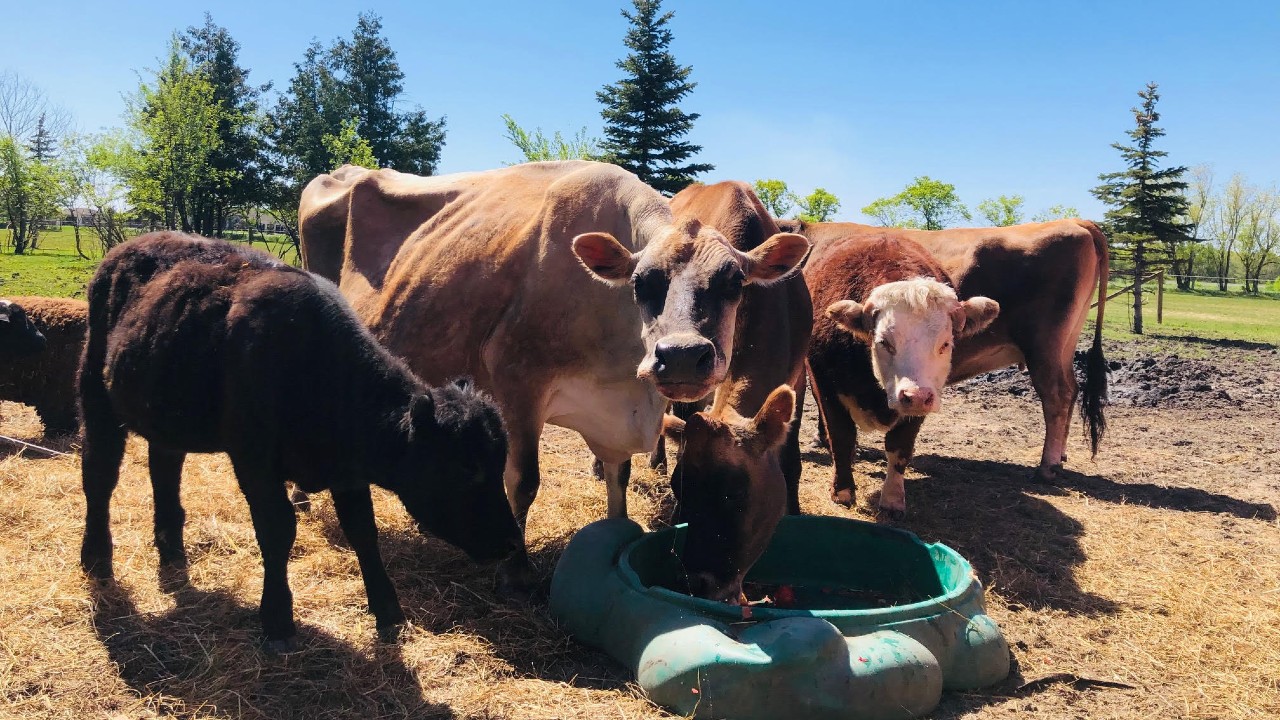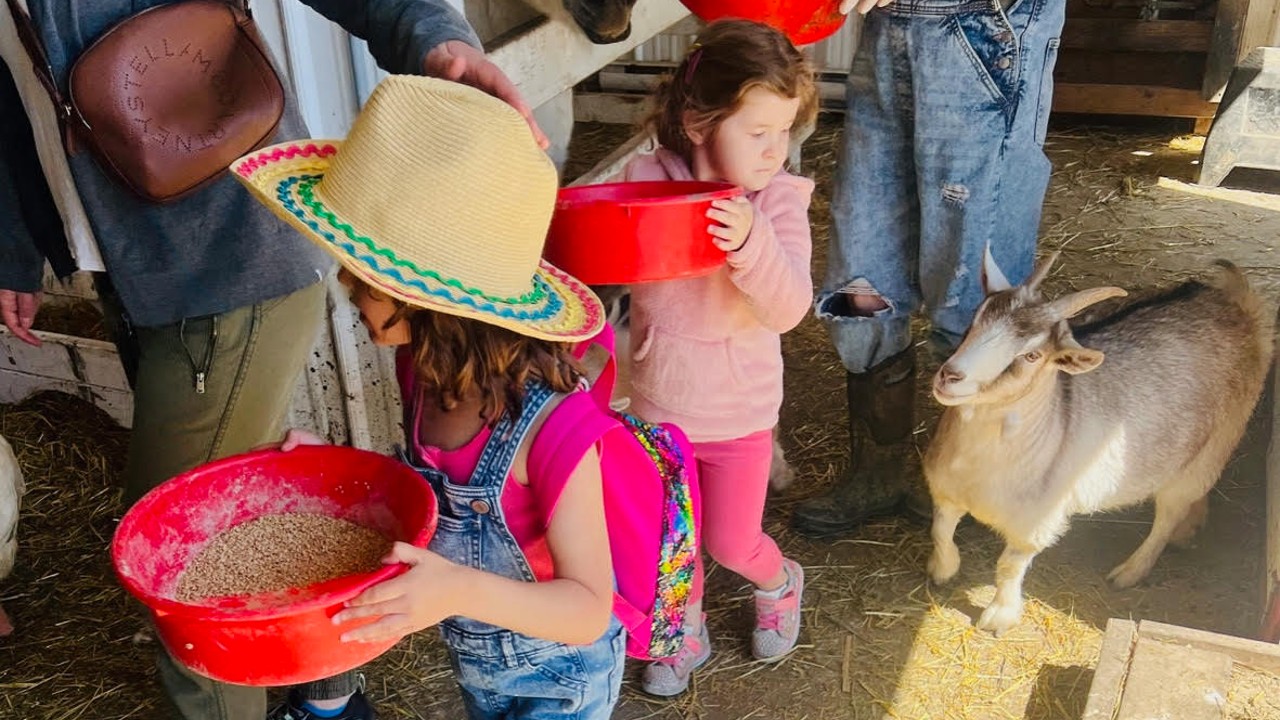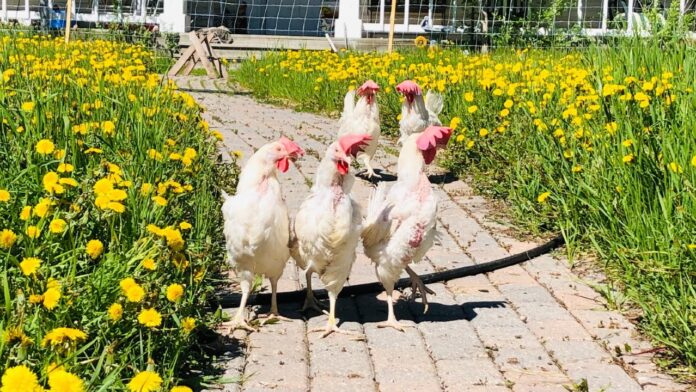I’m sorry to tell you that these fuzzy little piglets and woolly little lambs lead shitty little lives.
When my daughter began kindergarten, I knew the day would come when I would get an electronic mail about an upcoming discipline journey to the zoo or a petting farm. I positively felt some trepidation—not desirous to be that mother who causes a scene—but I was able to take the chance to reply. I definitely keep in mind visiting the zoo with my class as a child, being advised it was an academic expertise while I stifled my discomfort seeing animals in cages. It would have been odd again then to decide out of animal-based discipline journeys attributable to some unnamed uneasiness. Today although, issues are a bit totally different, and now as a guardian I am ready to reply to that electronic mail with, “My daughter will not be attending the field trip to the petting farm. Here’s why . . .”
Of course most youngsters love animals. They are drawn to them, particularly the lovely baby ones, and they love studying all in regards to the creatures of the world. Even as an grownup, who doesn’t love cuddling with furry mates? But along with all of the enjoyable, the concept behind animal-based discipline journeys is to coach kids and to construct curiosity and compassion towards animals. So some might imagine that by pulling my youngster out of such experiences I am hindering her probability to study. But I see it as an opportunity to show.
That’s as a result of in our household we see animals a little bit in another way, and our household values require us to tread a little bit lighter. We don’t consider it’s proper to carry wild animals captive in zoos or aquariums, nor to deal with farmed animals as toys to be performed with and exploited. Animals aren’t instruments of schooling or leisure, but fairly sentient beings with whom we share this planet; animals are parents too, with infants to guard and households they’d fairly spend their time with as a substitute of being manhandled by our kids.
And moreover, analysis reveals that interacting with animals in captivity isn’t even that academic. A research printed within the journal Conservation Biology, surveyed 2,800 kids aged 7-15, after a go to to the London Zoo. The researchers discovered that 66 p.c of kids confirmed no indication of studying something new about animals or conservation after their unguided tour of the displays. The animals, in the meantime, are caught there, many unable to interact in pure behaviours, some affected by zoochosis, all attributable to this false notion of zoos being essential areas of studying. Don’t be fooled: The principal function of zoos is to entertain a paying public.
Photo: Courtesy of Jessica Scott-Reid
Similarly, it’s tough to justify dealing with baby chicks, using a pony or watching a sheep get sheared as a way of schooling. And even when it was, is it price it? Rescuers of animals from petting farms report that after their summer season on the farm these animals are sometimes confused, anxious and extremely terrified of being dealt with by people. Petting farms by their very nature aren’t locations of animal care. Like zoos, they are cash makers, current just for leisure and revenue. Thus the extent of care is predicated purely on economics. Feed high quality is commonly low, enclosures are small to make sure kids can entry the animals, and barely are shelters offered in order that animals can get away from the solar and from all these kids. Legal rules for petting farms are sometimes restricted to public well being fairly than animal welfare. Outbreaks of harmful illnesses similar to E.coli have been reported at petting farms previously. Ultimately, petting farms are, as one rescuer as soon as described to me, merely a tense pitstop for animals en-route to the slaughterhouse.
And what do these experiences really train our youngsters? That animals are right here for us, to do with as we please and to stroll away from as soon as completed with—not in contrast to that toy they lose curiosity in 5 minutes after we purchased it.

Photo: Courtesy of Jessica Scott-Reid
Believe it or not, animals truly exist for their very own functions. They have their very own lives, their very own needs and their very own wants—now that’s the type of schooling I need for my youngster! Thankfully, there’s a sort of place the place these essential classes are taught, and it’s not on a farm or in a zoo. It’s at a sanctuary.
Animal sanctuaries are totally different. They put the animals’ wants and welfare first. If an animal doesn’t need to be picked up or petted or bothered by kids that day, they don’t must. Sanctuary animals are additionally usually rescued from dire conditions (together with petting farms), are by no means bred, and they won’t be slaughtered as soon as they develop too large or when they’re now not deemed helpful. Nor do sanctuary animals ever threat being euthanized if there is no such thing as a longer room for them.
So as a substitute of spending the day along with her class on the petting farm, my daughter and I, and one other like-minded household went to our native farmed animal sanctuary. There we helped feed animals, clear stalls and even felt the kick of a calf contained in the stomach of a not too long ago rescued dairy cow. We discovered the calf could be the primary baby Daisy the cow could be allowed to maintain, after having a number of taken away from her on the dairy farm. My daughter beloved her time on the sanctuary, the place she was nonetheless capable of pet the animals who had been up for it that day. She additionally beloved returning to high school to inform her classmates all about it.

Photo: Courtesy of Jessica Scott-Reid
Sanctuaries supply these sorts of experiences and classes relating to animals and compassion that I am positive many parents would truly need for his or her kids, and that kids too would admire. In truth one study published this year discovered that kids within the UK aged September 11 had been extra prone to consider “farm animals should be treated the same as people and pets, and think eating animals is less morally acceptable than adults do.”
Though discipline journeys to zoos and farms stay pretty widespread, fortunately attitudes in the direction of animal captivity and exploitation are evolving. When I replied to my daughter’s faculty suggesting a visit to the animal sanctuary could also be a greater possibility for subsequent yr, the workers had been receptive and requested for extra info. I assume I’ll ship them this story.



